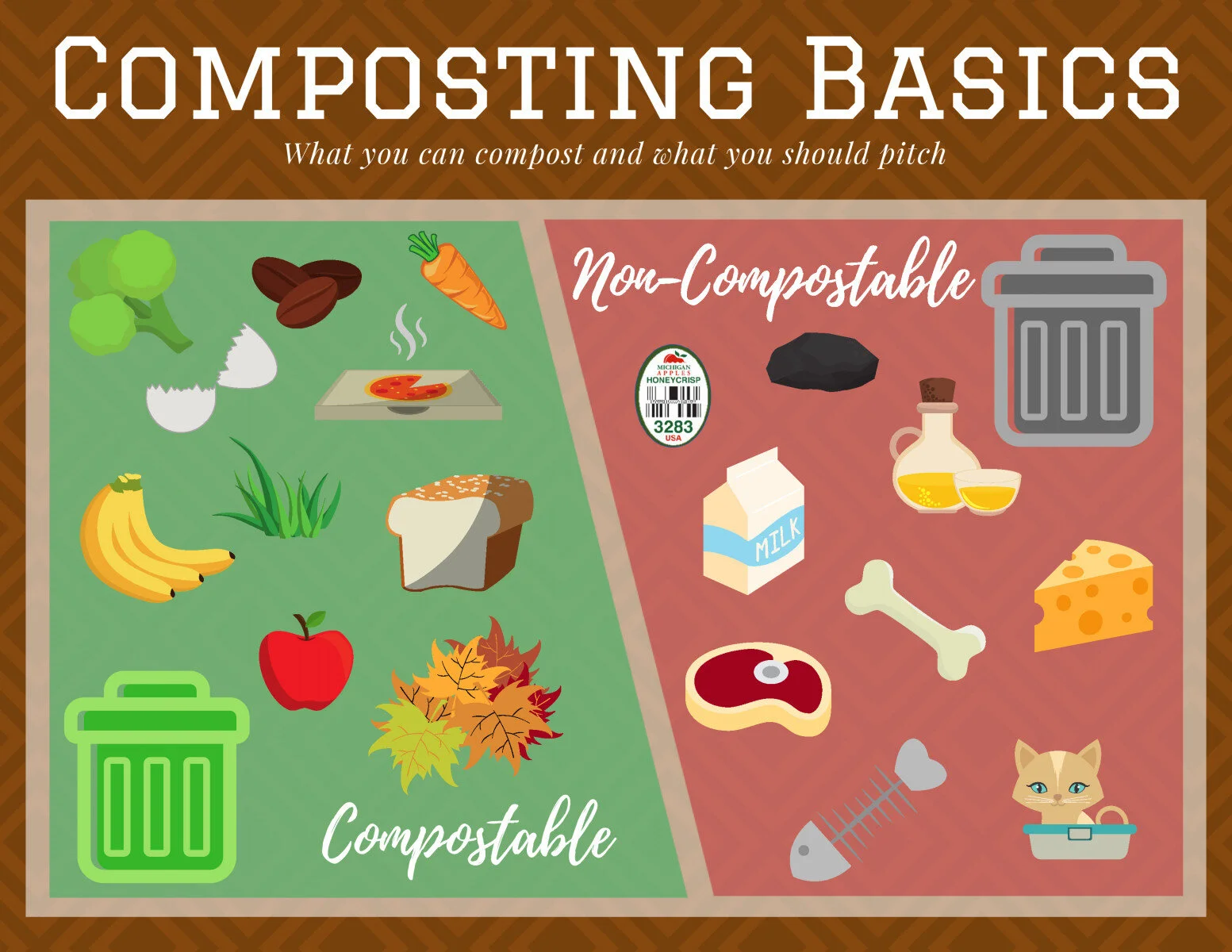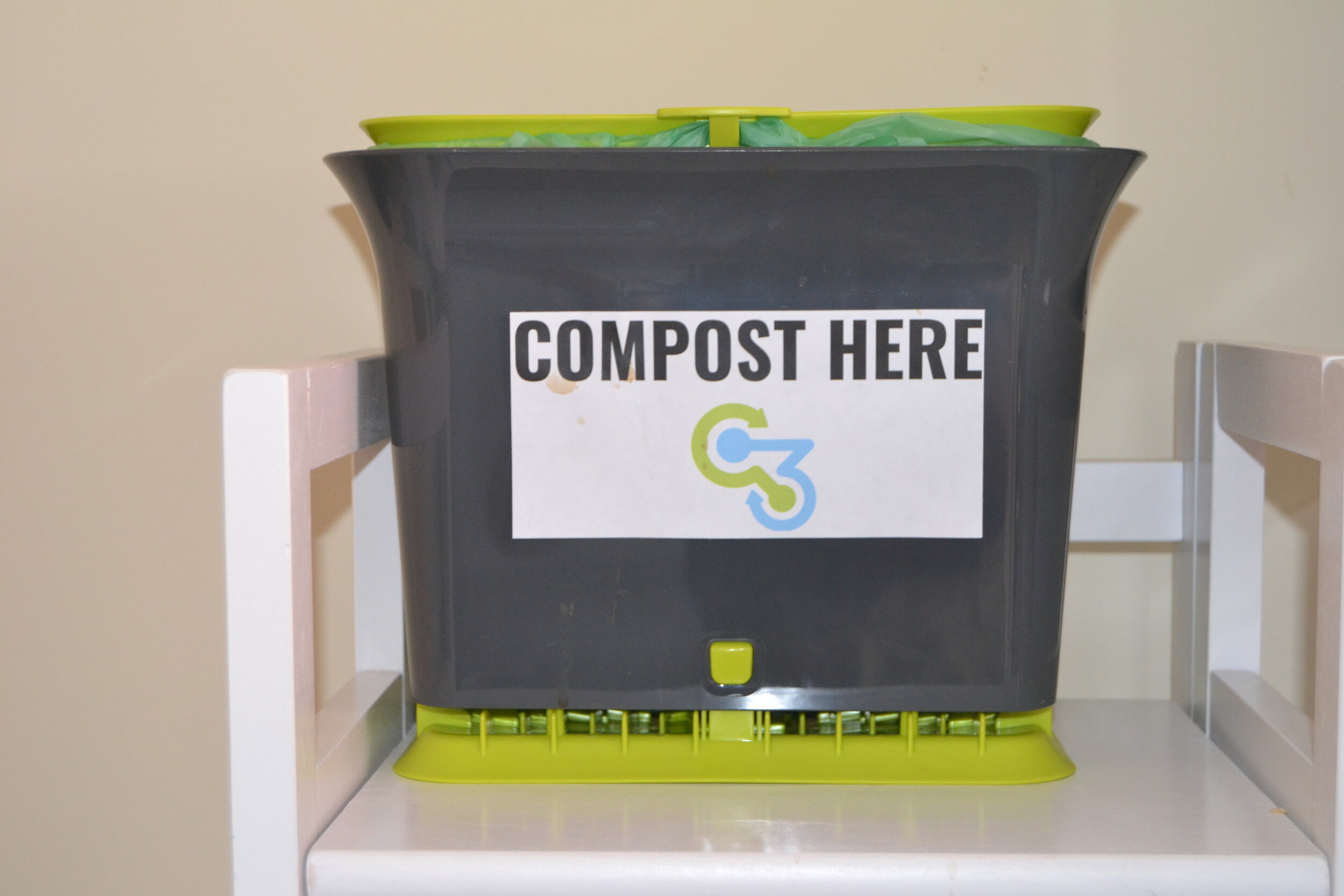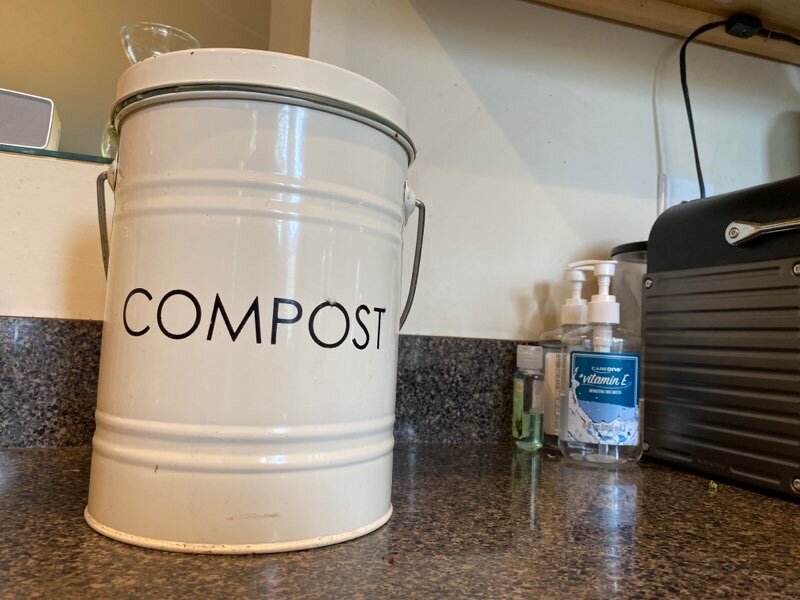What’s Stopping You from Composting?
Teri at McIntire’s Food Waste Bin
According to Project Drawdown, reducing food waste is one of the most impactful actions available to us as individuals to help the climate crisis. However a survey by Harris Interactive and the National Waste & Recycling Association reveals that 72% of Americans do not compost their food waste. So why aren’t more of us doing it? This blog aims to explore and dismantle the barriers.
“Do food scraps REALLY matter that much?”
I think a big reason more households aren’t composting is that many still don’t fully understand the connection between food waste and climate pollution. In a nutshell (pun intended), the decomposition process of green waste in a landfill results in methane emissions, which is a super potent Greenhouse Gas. (Green waste is organic matter that is thrown away like food scraps, leaves, cut grass, etc.) Since 31% of our food supply ends up in landfill in the U.S., reducing food waste and composting will help us make a climate difference! According to the Institute for Local Self-Reliance, studies show that 23 to 83 pounds per household per month could be diverted through home composting.
“I’m not sure what I can and cannot compost”
If you’re using McIntire or Black Bear Composting, pretty much any food scraps are game -- even dead plants, paper towels, oyster, and other seafood shells, and commercially compostable packaging lids and utensils are fine! Be sure to look for the BPI (Biodegradable Products Institute) label. For a comprehensive list that we like, check out the Small Footprint Family lists of 100 things you can compost. Here’s a quick list here is Planet Forward’s list of easy things to compost to get you started:
Fruit and vegetable scraps
Coffee grounds
Loose leaf tea
Spoiled soy/rice/almond/coconut milk
Cooked pasta
Cooked rice
Pasta sauce/tomato paste
Seaweed/kelp
Tofu
“It’s inconvenient”
Here in Charlottesville we are lucky to have numerous composting options: the City Compost pilot program, McIntire food waste collection, locally owned Black Bear Composting, and for some of you, your very own backyard. I live in a small home just outside the City boundaries, so I place my weekly food scraps into the freezer and once a week drop it off at McIntire. This was a game-changer for me. This makes compost transport super easy and odor-free.
As for space, the countertop bin really doesn’t take anymore than about one milk carton jug of space on the counter (see C3 office composter and mine). It takes maybe 2-3 days to fill, so I end up filling maybe two bags a week and head to McIntire once a week on the way into work or other errands. If you make a bigger family meal that includes bones, shells, or rinds (e.g. watermelon), you might have to make a separate trip. But the nice thing to keep in mind is that in five months time, your food scraps become beautiful, usable compost instead of unusable landfill waste.
“It stinks.”
In the six years I’ve been composting, surprisingly the bin doesn’t stink or create fruit flies (my wooden fruit and vegetable bowl on my kitchen island does that for me)! I’ve used at home and at home two different compost styles (shown) with secure lids and odors are not an issue. Of course, if I left my compost bin full for a whole weekend or while I was away, that would be a different story. Every couple of days, place the bag in the freezer and you’re good. Now if you’re doing backyard composting and it’s stinky, here’s a helpful article for you.
Place in freezer to avoid odors and make transport easier
Parting Words of Encouragement
Composting is not just beneficial for the environment in terms of avoiding emissions, it’s also amazing for your garden and landscaping for its soil enhancer superpowers as it filters out 60-95% of stormwater pollutants with its healthy microbes. It also helps the economy through job creation.
If you want to get further inspired by the power of composting and regenerative agriculture, watch the Soil Story and the Compost Story by Kiss the Ground and get started composting today.
You’ll be amazed how much further this can take your household waste diversion efforts!
*Also avoid coal or coal ash, walnuts (they are toxic to many plants), products with pesticides, herbicides, or fertilizers, produce stickers (why can’t they make those biodegradable?!), and weeds.
Sources:
Coming May 5th: C3’s Virtual Tour of Black Bear Composting






